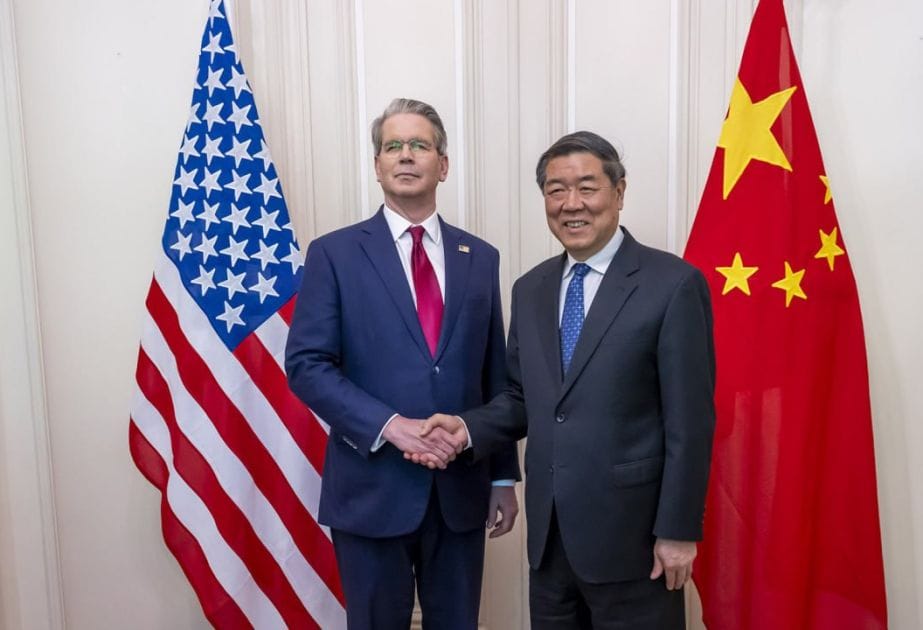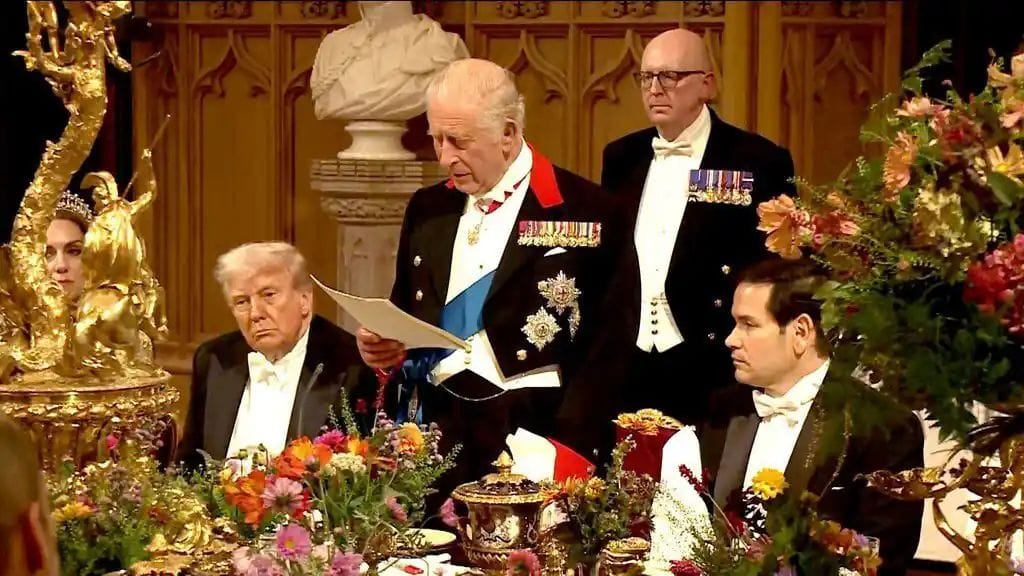U.S.-China trade talks in Madrid focus on TikTok deadline, tariff disputes, and rare-earth exports, with little progress but hopes of a truce.
U.S.-China trade talks entered a tense second day in Madrid as officials clashed over tariffs, rare-earth exports, and the looming TikTok deadline.
The latest round of U.S.-China trade talks resumed on Monday at Madrid’s Palacio de Santa Cruz, the headquarters of Spain’s foreign ministry.
Delegations led by U.S. Treasury Secretary Scott Bessent and Chinese Vice Premier He Lifeng are under pressure to defuse tensions that have rattled global markets and complicated the economic relationship between the world’s two largest powers.
Focus on TikTok and Tariffs
A U.S. government official confirmed that discussions “centered on TikTok, tariffs, and the economy.”
The talks are overshadowed by Washington’s September 17 ultimatum to ByteDance, TikTok’s Chinese parent company, to divest its U.S. operations or face a nationwide ban.
The TikTok deadline has become one of the most contentious points in the negotiations, with Beijing accusing Washington of targeting Chinese technology companies for political gain.

Alongside the TikTok issue, tariff disputes remain unresolved. The U.S. tariffs first imposed under former President Donald Trump sparked Chinese retaliation through higher import duties and restrictions on rare-earth exports.
This back-and-forth has escalated into one of the most significant trade battles in decades.
Madrid Negotiations: Limited Progress
On Sunday, both delegations spent nearly six hours in talks without signaling any major progress.
This marks the fourth round of U.S.-China trade talks in just four months, following earlier sessions in European capitals.
In July, a round in Stockholm produced a temporary 90-day truce, which allowed China to resume rare-earth exports and eased some retaliatory tariffs.
Analysts caution that such deals are stopgaps rather than solutions, as fundamental disagreements remain unresolved.
Maria Torres, a trade policy researcher at the European Institute for Global Studies, argued: “Extending the TikTok deadline or pausing new tariffs might be the most achievable outcomes here. Neither side wants escalation right now, but neither is ready to compromise on core demands.”
Skepticism From Analysts
Despite the high-profile meetings, experts remain skeptical about Madrid delivering substantive outcomes.
William Reinsch, senior trade adviser at the Center for Strategic and International Studies, said: “I’m not expecting anything major unless there is a direct meeting between Trump and Xi. These negotiations often serve as groundwork for such summits.”
This reflects the common perception that lower-level talks are limited in scope and that only presidential involvement can unlock breakthroughs.
Economic Stakes on Both Sides
The economic stakes remain significant. For the U.S., enforcing the TikTok deadline is framed as a national security measure to protect American user data.
At the same time, U.S. manufacturers are pushing for tariff relief to reduce production costs and stabilize supply chains disrupted by the trade war.
For China, maintaining global influence for its technology companies and securing a rollback of tariffs are top priorities.
Beijing is also determined to protect its leverage in the rare-earth sector, as these minerals are crucial for everything from defense systems to electric vehicles.
Rare-Earth Exports as Leverage
Rare-earth exports have been a recurring flashpoint in the U.S.-China trade talks. China controls the bulk of global supply and has used export restrictions as a bargaining tool.
The resumption of shipments after the July truce was seen as a small victory for U.S. industry, but uncertainty remains over whether Beijing will continue to use rare-earths as economic leverage.
Looking Ahead
China’s embassy in Madrid suggested a concluding press conference may take place on Monday afternoon, hinting that talks could wrap up quickly.
However, past rounds—such as those in London over rare-earths—sometimes stretched into a third day.
Once the Madrid negotiations conclude, Secretary Bessent will travel to London for a meeting with UK Finance Minister Rachel Reeves.
His trip coincides with preparations for President Donald Trump’s state visit to the United Kingdom, where he is expected to meet King Charles on Wednesday.
The Madrid meetings highlight the ongoing strain in U.S.-China relations. While expectations for a breakthrough remain low, the continuation of dialogue itself is viewed as essential to preventing escalation.
The most likely outcome is an extension of the TikTok deadline and perhaps a temporary easing of tariff disputes, leaving larger issues unresolved until a possible Trump-Xi summit.
For now, the U.S.-China trade talks serve less as a venue for grand solutions and more as a mechanism to buy time, avoid confrontation, and keep diplomatic channels open. The road forward is uncertain, but both nations recognize that disengagement is not an option.


